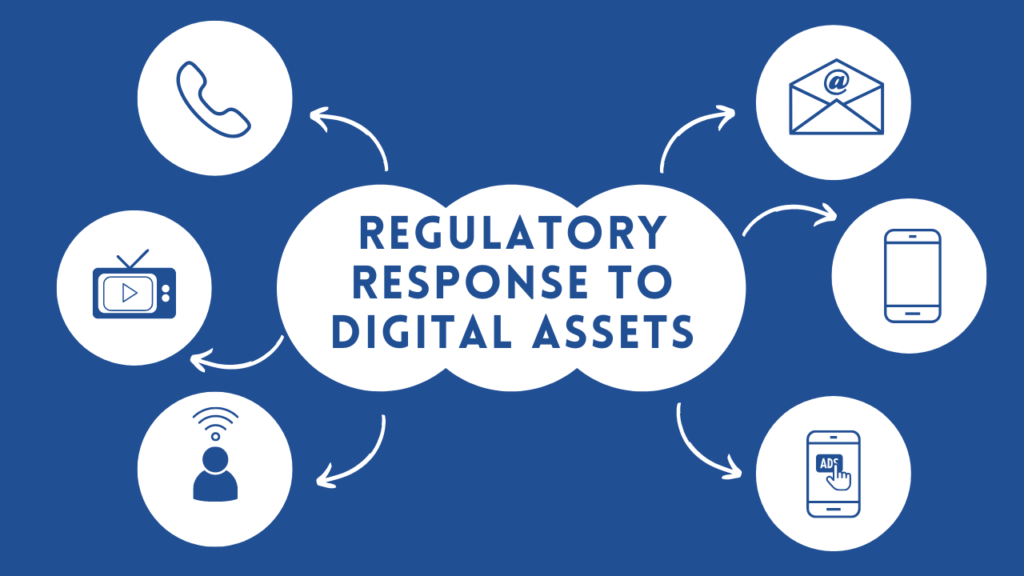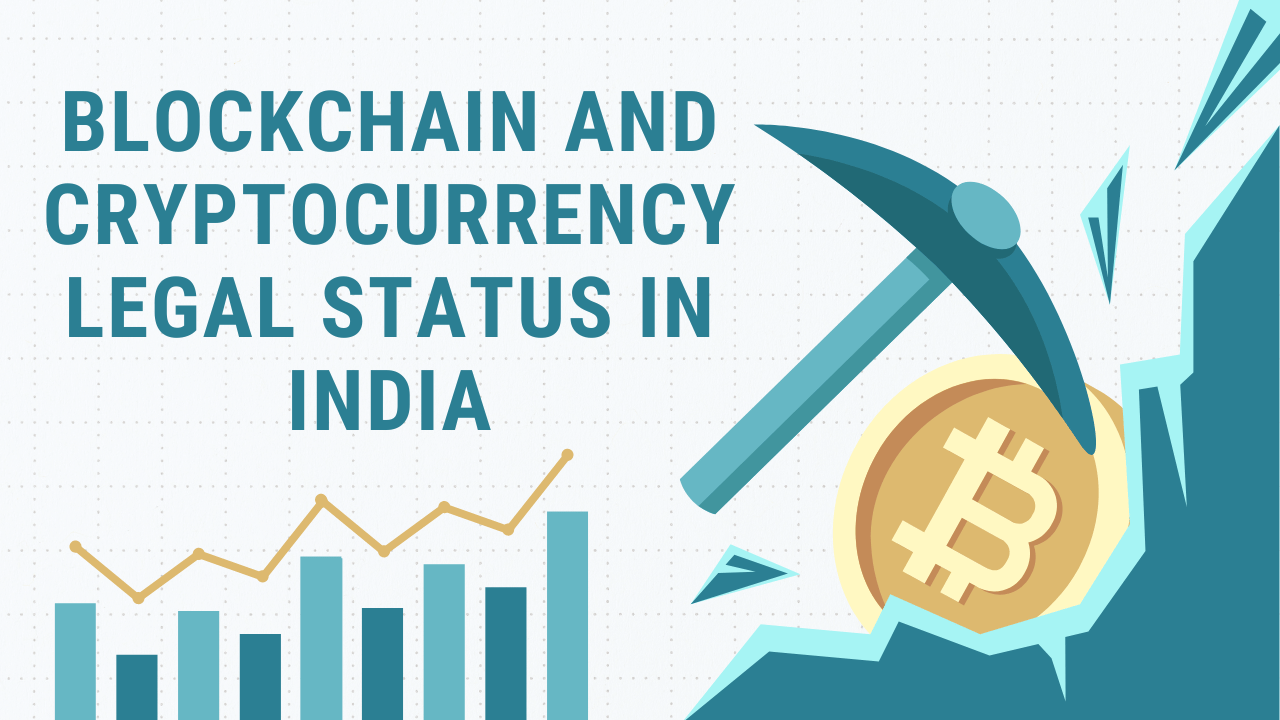Navigating the intricate landscape of digital finance, India stands at a pivotal juncture, grappling with the integration of blockchain technology and cryptocurrencies within its legal framework. The dynamic interplay between innovation and regulation underscores the country’s cautious yet optimistic approach. Amidst this backdrop, the legal status of blockchain and cryptocurrencies in India emerges as a focal point of discussion and deliberation. As stakeholders navigate this evolving terrain, they encounter a mosaic of laws and regulations, reflecting the complexities inherent in embracing disruptive technologies. This essay delves into the labyrinthine realm of Indian regulations, shedding light on the nuances, challenges, and potential trajectories shaping the future of blockchain and cryptocurrencies in the country. Whether one is an investor, enthusiast, or simply curious, this exploration offers a compelling narrative that captures the essence of the “Blockchain and Cryptocurrency Legal Status in India.”
Who Stands to Benefit from This Insightful Exploration?
Blockchain and cryptocurrency enthusiasts, investors, legal specialists, and lawmakers are all part of our target audience for this research. If you’re interested in the investment landscape, the legal subtleties, or the technological ramifications of these digital assets, this article will provide significant insights. We hope that by breaking down the intricacies and giving you a clear picture of the regulatory position, we can educate you enough to take on the thrilling yet daunting world of blockchain and cryptocurrencies in India.
Current Legal Framework and Regulatory Environment

A combination of cautious optimism, a desire to encourage innovation, and a focus on maintaining financial stability and conformity with international standards describe the Indian government’s stance on blockchain and cryptocurrency regulation. This section delves into the significant events, projects, and hurdles in India’s legal and regulatory framework that have shaped the digital asset ecosystem.
Supreme Court of India’s Stance on Cryptocurrency
The Indian Supreme Court overturned the Reserve Bank of India’s (RBI) prohibition on bitcoin transactions in a historic ruling in 2020. There needs to be a thorough regulatory framework for cryptocurrencies, and this decision was a watershed moment that the crypto community rejoiced. Cryptocurrencies have some practical use, but the Court has made it clear that they are not legal tender in India. The importance of adaptable regulatory systems in light of the dynamic nature of financial technology was emphasized by the judiciary in this verdict.
Regulatory Response to Digital Assets

In response to the digital assets ruling from the Supreme Court, the Indian government and regulatory agencies have been hard at work revising laws and drafting new rules. Notably, it is now required to declare transactions involving Virtual Digital Assets (VDAs) according to the Companies Act, 2013 amendments. The goal of this change is to make digital assets more accessible and accountable by incorporating them into the existing financial system.
Anti-Money Laundering (AML) Measures for Crypto Businesses
India has broadened its anti-money laundering legislation to include crypto firms, in line with global trends and FATF guidelines. Crypto exchanges and associated companies must now report suspicious transactions and comply to stringent KYC (Know Your Customer) standards in light of this new development. In keeping with its dedication to preserving financial integrity and security, India has implemented these safeguards to curb the potential abuse of digital assets for the purpose of money laundering and the funding of terrorism.
Reserve Bank of India’s Digital Initiatives
After the Supreme Court’s decision, the RBI’s position on cryptocurrency changed. Even though the Reserve Bank of India (RBI) is still worried about digital currency threats, it sees blockchain technology’s potential advantages. Because of this, there have been efforts to investigate the possibility of creating a CBDC, or Central Bank Digital Currency, to replace fiat currency in the digital realm. Such endeavors demonstrate a sophisticated strategy, blending prudence with inventiveness.
Challenges in Integrating Blockchain Technology
Although things are looking up, there are a lot of obstacles to overcome when trying to incorporate blockchain technology into the financial and legal systems of India. Strategic regulatory solutions are necessary to address concerns including consumer protection, privacy, and transaction security, as well as the possibility of market instability. The government’s initiatives to tackle these issues while promoting technical progress underscore the intricate relationship between innovation and regulation in the digital era.
Innovations and Regulations
At this crossroads, innovation and legislation will determine the course of blockchain and cryptocurrencies in India. Here we take a look at the changing landscape, possible advantages, and the cautious optimism that is driving India’s approach to these revolutionary technologies.
Encouraging Technological Innovation
India has shown its determination to encourage technological advancement through its proactive revisions of current laws and the establishment of digital asset-specific rules. In order to establish itself as a frontrunner in the digital economy, India is working to create a legislative environment that supports the expansion of blockchain technology and cryptocurrency. Both local innovation and foreign investment and cooperation are bolstered by these endeavors, which in turn propel economic growth and technical advancement.
Financial Stability and Compliance
Indian authorities continue to prioritize finding a balance between innovation, financial stability, and international conformity. The entire plan to manage risks connected with digital assets includes incorporating VDAs into regulatory frameworks, adhering to AML standards, and exploring a CBDC. In line with international norms and practices, these steps would safeguard consumers, forestall financial crimes, and guarantee the security of India’s banking system.
Consumer Protection in the Digital Age
An important part of India’s regulatory framework is consumer protection, with rules and regulations put in place to protect those who use digital assets. The government’s efforts to educate consumers on the risks and benefits of digital currencies and impose strict KYC norms for crypto firms demonstrate its commitment to creating a secure and transparent digital financial sector.
Alignment with International Regulatory Standards
An effort to conform to global norms and practices is the driving force behind India’s regulatory approach to blockchain and cryptocurrency. As a responsible and proactive player in the global digital economy, India has shown its dedication through its involvement with global bodies like the FATF and its analysis of international trends in digital asset regulation. By harmonizing these goals, India can be certain that its policies will help advance both its own domestic agenda and the global financial system as a whole.
Adapting to International Compliance and Standards
Blockchain technology and cryptocurrencies are changing the world, and India is adjusting its regulatory structure to keep up. In order to strengthen its digital economy legally, India is bringing its rules in line with global trends, which are discussed in this section.
Financial Action Task Force (FATF) Influence
In order to prevent the financing of terrorism and money laundering, the Financial Action Task Force (FATF) sets important global guidelines. A commitment to international standards is demonstrated by India’s regulatory strategy for cryptocurrencies, which incorporates FATF recommendations. Following these rules would help India reduce the dangers of digital assets and make them safer for everyone involved.
International Standards for Cryptocurrency Regulation
The effectiveness and global recognition of India’s cryptocurrency regulatory structure depend on its alignment with international standards. Consumer protection best practices, know-your-customer processes, and the reporting of questionable transactions are all part of this. Both domestic and foreign investors and partners will have more faith in India’s digital asset market as a result of this alignment.
Global Collaboration for Technological Advancements
India has shown its willingness to learn and adapt by participating in global conversations and partnerships on cryptocurrency and blockchain policies. India is better positioned to compete in the global digital economy because to these partnerships, which allow it to adopt cutting-edge technology frameworks and regulatory norms.
Consumer Protection and Risk Management
Consumer protection in the digital asset market must be a top priority. Here we take a look at the steps that India has taken and the rules that it has enacted to ensure the safety of cryptocurrency transactions and its users.
Strengthening KYC Procedures
Consumer protection in the bitcoin area is firmly supported by Know Your Customer legislation. India guarantees that all cryptocurrency firms uphold stringent standards of consumer identification by requiring thorough KYC procedures. Both the prevention of fraud and the development of a responsible and open digital asset ecosystem are aided by this.
Educating Consumers on Digital Asset Risks
In order to safeguard consumers, education is crucial. Public awareness campaigns outlining the pros and cons of cryptocurrency are receiving more and more attention from the Indian government and regulatory agencies. With this project’s help, users will be able to better understand the digital asset market and make educated judgments.
Monitoring and Reporting Suspicious Transactions
Financial crime prevention in India has prompted authorities to stress the need of keeping tabs on and reporting any questionable financial dealings. Companies dealing in cryptocurrency must keep meticulous records of all transactions and disclose any actions that could point to the possibility of money laundering or the funding of terrorists. To keep India’s financial system secure, this watchfulness is essential.
Challenges and Future Prospects
Blockchain and cryptocurrency integration into India’s financial and legal systems is an exciting but challenging journey. In this part, we will think about the digital assets in India, their possible future, and the problems that may arise.
Regulatory Uncertainties
The lack of clarity on regulations in India is a major obstacle for blockchain technology and cryptocurrencies. A clear and comprehensive legislative framework is still necessary, despite the fact that considerable progress has been achieved. For the sector to experience growth and innovation, it is imperative that this uncertainty be addressed.
Promoting Innovation while Ensuring Compliance
Another difficulty is striking a balance between the two goals of encouraging technical innovation and guaranteeing complete conformity with regulatory norms. India’s strategy is to promote blockchain and cryptocurrency growth while protecting consumers and ensuring financial stability.
The Potential for Blockchain Beyond Cryptocurrencies
Blockchain technology has enormous potential uses outside of the cryptocurrency industry, particularly in the realms of governance, supply chain management, and finance. Blockchain’s adaptability and revolutionary potential might be put to good use in India’s future plans by incorporating it into digital identity verification, smart contracts, and other areas.
The Path Ahead
There will be obstacles and possibilities along India’s journey through the murky waters of blockchain and cryptocurrency legislation. Building a regulatory framework that encourages innovation, safeguards consumers, and keeps the economy stable will need constant communication between government officials, business leaders, and the general public. India has the opportunity to fully utilize blockchain technology and cryptocurrencies to drive economic growth and creativity in the digital age. To achieve this, the country must create an environment that encourages technological progress while guaranteeing compliance with regulations.
Frequently Asked Questions
Is cryptocurrency legal in India?
Yes, cryptocurrency is legal in India, but it is not recognized as legal tender. New regulations are cropping up to spell out exactly how to use it.
What are the KYC requirements for cryptocurrency in India?
Users are need to provide identification credentials such as a PAN, Aadhaar, or passport in order for crypto exchanges and businesses to comply with stringent KYC standards.
Can cryptocurrencies be used for payments in India?
Cryptos may be bought and sold on exchanges, but they aren’t legally accepted for most purchases and have limited usage as a payment mechanism.
What does the Supreme Court of India say about cryptocurrency?
The Indian Supreme Court’s decision to lift the Reserve Bank of India’s prohibition on using banking services for bitcoin transactions was a watershed moment for the cryptocurrency market in 2020.
Are there any tax implications for trading cryptocurrencies in India?
Crypto profits are subject to a flat rate of taxation and services offered by crypto exchanges are taxable under the Goods and Services Tax (GST) in India.
Also Read: How Blockchain is Changing Indian Finance?
Conclusion
Lastly, regarding the Blockchain and Cryptocurrency Legal Status in India, the fact that blockchain and cryptocurrency are legitimate in India shows that the nation is being both cautious and forward-thinking about digital assets. With a careful balance between innovation, regulation, consumer protection, and international compliance, India is well-prepared to confidently and imaginatively manage the challenges of the digital age. With the ever-changing legal and regulatory framework, blockchain and cryptocurrencies in India are poised for great things to come. The country’s digital economy is poised to lead the way in growth, innovation, and expansion.

Timothy Jensen is an expert writer who specializes in the world of cryptocurrencies, including blockchain technology and Bitcoin. He has a passion for explaining complex topics in an easy-to-understand way. Timothy’s work aims to demystify the digital currency landscape for his readers.

